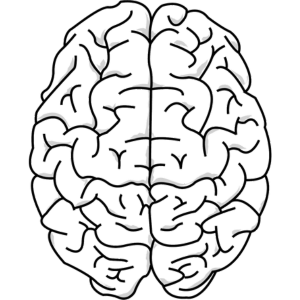Me, Not You! My Behaviour as Communication
“It’s not you, it’s me…” How often have we heard this expression in everyday life?
When we witness behaviour in our settings, when an individual is emotionally overwhelmed or heading towards crisis, there is a tendency to look at that behaviour in isolation. We try to decipher the emotions and feelings behind the communication and, understandably, we focus our efforts on applying strategies to de-escalate the situation. Our attention is centred around the person in distress.
But how often do we pause to consider the role we may have played? There is inevitably a correlation between our own behaviour and the impact it has on those around us. It is only once we recognise this and raise our levels of self-awareness and self-reflection that we can better support those in our care.
The importance of understanding ourselves
The individuals we work with in our settings need us to be emotionally available and regulated to help them navigate their own difficult emotions and feelings. In an ideal world, our responses would be calm, measured, and consistent every time. However, the reality is, what is going on inside us and around us has an enormous impact on how we feel inwardly and behave outwardly.
When we walk into our place of work and interact with individuals, we bring our ‘whole self’ with us, so we need to be aware of the factors that influence our behaviour and responses. Broadly speaking, these can be split into three layers:
1: External factors
These are often superficial events or conditions that have an adverse effect on our emotional state. Perhaps we have been stuck in a traffic jam on the way to work, which has made us late; or maybe there is noisy building work taking place in our setting, which is making it impossible to concentrate. The associated lack of control can trigger strong feelings and, therefore, powerful reactions when we find ourselves in challenging situations.
2: Personal factors
We are all human, so at any given time, we all have something going on either at work or at home that impacts our feelings and behaviour. It could be relationship issues, financial worries, health concerns or a bereavement. It can be hard to leave these feelings ‘at the door’ when we come to work and they can often influence how we interact with our colleagues or individuals in our care, whether we are aware of this or not.
3: Historical factors
As products of our past, when we find ourselves confronted by highly charged situations, it can trigger a multitude of deep-rooted, uncomfortable feelings of our own. Beliefs we hold, trauma we may have experienced, and habitual, reactionary patterns of behaviour can bubble up and affect how we behave.
We can react rather than respond
More often than not, we are unaware of these variables, as we often operate on autopilot throughout our daily working lives. This lack of self-awareness and self-reflection can lead us to react, not respond, to what is in front of us. We jump straight to power and discipline rather than looking at the part we may have played before, during, and after the event.
Questions to increase our self-awareness
To be clear, self-reflection does not need to involve locking yourself in a dark room for hours on end. Instead, it can be a dynamic process – rather like a dynamic risk assessment – where you take a few seconds to pause and ask yourself four simple questions. Remember that volatile situations can evolve and escalate quickly, so you will need to practise this process on a regular basis.
The four questions are:
- How am I feeling?
- What does this individual feel, need, or want?
- How is the environment impacting them?
- How can I best support them?
Never underestimate the power of the first question because everything you say and do – from your stance, to your facial expression, to the words you use, to the tone of your voice – projects how you feel in that moment and will, in turn, affect the other person.
It is important to note that the focus here is not only on behaviour; it is on looking beyond that to try to understand the emotions that have prompted the behaviour. All behaviour is communication, so you need to consider what the individual needs you to know and understand in that moment.
Fostering a culture of self-reflection
Like most initiatives, a culture of self-reflection starts at the top and needs to be developed and embedded at both an institutional and individual level. Time pressures and other demands often mean it is too easy to become functional in terms of our interactions with individuals, so it is vital to build a self-reflective approach into every process, system and routine.
We need to understand the importance of introspection and taking responsibility for our own behaviour. Holding up a mirror like this can be an uncomfortable experience for many people, so leaders must endeavour to nurture an open and honest environment that facilitates collaboration, free from judgement or criticism.
Encouraging colleagues to share their perceptions of each other can be hugely illuminating – we don’t often realise how we come across to others and it can be helpful to glean feedback from those around us. Making ourselves vulnerable in this way takes courage, of course, but when managed well, it can be incredibly insightful, allowing us to recognise and address our own behaviour.
The power of the pause
Without a shadow of a doubt, the best de-escalation strategy is us. If we take the time to pause and apply a high level of emotional intelligence to our own thoughts, feelings and behaviour, we put ourselves in the best position to support others through difficult times.
Of course, facts are vital when we are faced with an individual in distress, not least for recording and reporting purposes: what happened, when did it happen, who was there, and so on. But feelings matter too, and it is the feelings we have about ourselves and how we behave as a result that are often the best indicator of the why.
By pausing and reflecting, we realise we have a choice. As Victor Frankl, the Austrian psychiatrist and Holocaust survivor wrote in his world-famous book, Man’s Search For Meaning, ‘Between stimulus and response there is a space. In that space is our power to choose our response.








